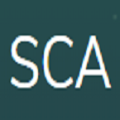In recent years a new class of side-channel attacks has emerged. Instead of targeting device emissions during dynamic computation, adversaries now frequently exploit the leakage or response behaviour of integrated circuits in a static state. Members of this class include Static Power Side-Channel Analysis (SCA), Laser Logic State Imaging (LLSI) and Impedance Analysis (IA). Despite relying on different physical phenomena, they all enable the extraction of sensitive information from circuits in a static state with high accuracy and low noise -- a trait that poses a significant threat to many established side-channel countermeasures. In this work, we point out the shortcomings of existing solutions and derive a simple yet effective countermeasure. We observe that in order to realise their full potential, static side-channel attacks require the targeted data to remain unchanged for a certain amount of time. For some cryptographic secrets this happens naturally, for others it requires stopping the target circuit's clock. Our proposal, called Borrowed Time, hinders an attacker's ability to leverage such idle conditions, even if full control over the global clock signal is obtained. For that, by design, key-dependent data may only be present in unprotected temporary storage when strictly needed. Borrowed Time then continuously monitors the target circuit and upon detecting an idle state, securely wipes sensitive contents. We demonstrate the need for our countermeasure and its effectiveness by mounting practical static power SCA attacks against cryptographic systems on FPGAs, with and without Borrowed Time. In one case we attack a masked implementation and show that it is only protected with our countermeasure in place. Furthermore we demonstrate that secure on-demand wiping of sensitive data works as intended, affirming the theory that the technique also effectively hinders LLSI and IA.
翻译:暂无翻译



